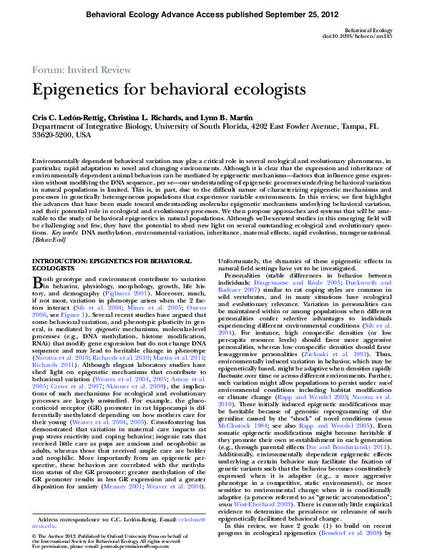
- DNA methylation,
- environmental variation,
- inheritance,
- maternal effects,
- rapid evolution
Environmentally dependent behavioral variation may play a critical role in several ecological and evolutionary phenomena, in particular, rapid adaptation to novel and changing environments. Although it is clear that the expression and inheritance of environmentally dependent animal behaviors can be mediated by epigenetic mechanisms—factors that influence gene expression without modifying the DNA sequence, per se—our understanding of epigenetic processes underlying behavioral variation in natural populations is limited. This is, in part, due to the difficult nature of characterizing epigenetic mechanisms and processes in genetically heterogeneous populations that experience variable environments. In this review, we first highlight the advances that have been made toward understanding molecular epigenetic mechanisms underlying behavioral variation, and their potential role in ecological and evolutionary processes. We then propose approaches and systems that will be amenable to the study of behavioral epigenetics in natural populations. Although well-executed studies in this emerging field will be challenging and few, they have the potential to shed new light on several outstanding ecological and evolutionary questions.
Behavioral Ecology, v. 24, issue 2, p. 311-324
Available at: http://works.bepress.com/lynn_martin/3/
